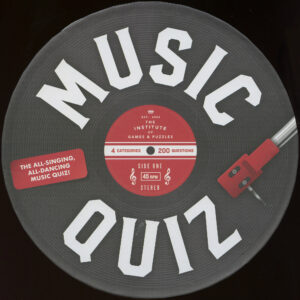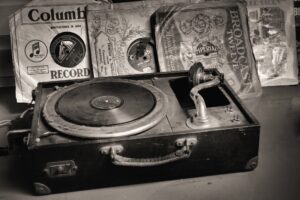Teenagers back in the day may have thought that Cream was solely responsible for “I’m So Glad.” That’s far from the truth. The song — a spiritual — initially was recorded by Skip James in 1931 and goes back further. Another example is Traffic’s beautiful “John Barleycorn Must Die,” which is an update of an old English folk song about growing malt for distilling into liquor.
The realization that rock music is a continuation of deep traditions and is part of the musical whole is a wonderful thing. It’s great to have a family tree.
On a more practical level, use of old blues songs by these strange young rock and rollers was a source of income and I am sure not a little happiness for the original artists. Those still alive during the early days often could use the money. In some cases, the kids didn’t pay that debt. Mostly, however, they made sure that the original artists got what they had coming.
There is no particular reason to start with The Memphis Jug Band other than that they were terrific and important, though largely underappreciated today.
Two of their tunes — “Stealin’ Stealin’ ” and “Lindberg Hop (Overseas Stomp)”— ended up in The Grateful Dead songbook, the latter minus one “stealin’ .” I’m not sure about the ‘h” at the end of Lindbergh. It’s missing in some versions of the title and included in others. The American themes of both fits in perfectly with many of the brilliant lyrics Robert Hunter wrote for the band.
The site Roots of the Grateful Dead provides background on The Memphis Jug Band, which was a loose knit group whose personnel constantly changed. It was founded in the 1920s by Will Slade, who had heard records of an even earlier band, The Dixieland Jug Blowers. That band was out of Louisville, Kentucky, where jug bands had long been popular.
Wikipedia sums up this particular band’s contribution:
The Memphis Jug Band was key in developing the jug band format, which evolved into the blues combo that is the basis of much of the popular music of today. However, their legacy, like that of other acoustic blues musicians of their era, has been largely overshadowed by the electric blues musicians of the 1950s. Modern jug bands still play many Memphis Jug Band songs, but generally the only songs recognizable to a wider audience are those that were covered by rock groups in the 1960s.
“Overseas Stomp (the Lindy),” is credited to Shade and Jab Jones, another band member. The song references both the American entry into World War I and Charles Lindbergh’s flight to Paris in 1927. I initially was going to use “On the Road Again” — a great song that is unrelated to the Willie Nelson song of the same name — but the lyrics are too politically incorrect.
The artwork for a band compilation album is by R. Crumb, who seems to have taken the same basic approach that he did in the famous cover of Janis Joplin’s “Cheap Thrills” album.










